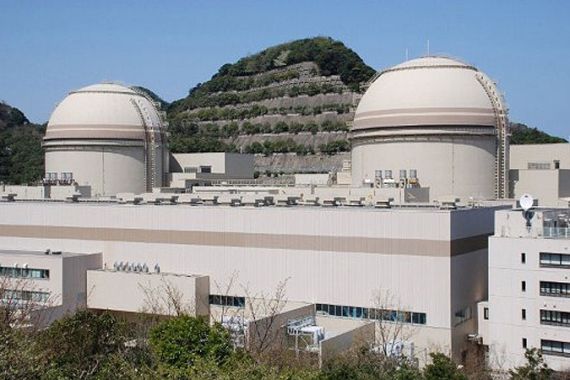Japan to restart two nuclear reactors
First reactors to go online since last year’s Fukushima disaster to avert power shortages, despite public opposition.

Japan’s government has approved the resumption of nuclear power operations at two reactors for the first time since last year’s radiation leak at the Fukushima plant in the wake of an earthquake-triggered tsunami.
The government’s decision to restart the two reactors operated by Kansai Electric Power Co at Ohi in western Japan was announced by Yoshihiko Noda, the prime minister, at a meeting with key ministers on Saturday.
Keep reading
list of 4 itemsThousands evacuate as wildfire grows ‘dramatically’ in western Canada
Guardians of the glaciers – life alongside Pakistan’s vanishing ice
Photos: Kenya sanctuaries toil to save birds of prey from extinction
The government’s approval came after Ohi’s mayor and the local governor publicly supported the plan, as the city depended heavily on nuclear energy before the crisis.
Yukio Edano, trade and industry minister, said safety remained the government’s main concern’.
“We have approved the beginning of the restarting process. It will take some time for the reactors to begin generating electricity. If there are safety problems, the process could be delayed,” he said.
The decision could open the door to more restarts among Japan’s 50 nuclear power reactors, which were shut after widespread protests and amid mounting public safety concerns after last year’s disaster.
The meltdown of reactors at the Dai-ichi nuclear plant in Fukushima led to massive leaks of radioactive material in the world’s worst atomic disaster since the Chernobyl accident in 1986.
Tens of thousands of residents near the plant were evacuated from the area, and large areas around the reactors are still off limits because of the danger of exposure.
Avert power shortages
Until now, the government had withheld approval to restart any nuclear reactors shut down for safety inspections or repairs since the disaster, and the last reactor went offline in May this year.
The government and power company that ran the plant, Tokyo Electric Power Company, have acknowledged they were unprepared for such a disaster.
The government has been pushing hard to bring some reactors online as soon as possible to avert power shortages as demand increases during the summer months, particularly Osaka, Japan’s second-largest metropolis, and other areas in the west.
The sudden shutdown of nuclear plants has hit Japan’s economy hard.
The government argues that the higher cost of energy without nuclear will cost people their livelihoods and could impede economic recovery.
While pushing for the restart of reactors that have passed safety checks, Noda has pledged to gradually reduce Japan’s reliance on nuclear power, which contributed to one third of electricity generation before the crisis.
Japan is debating renewable energy targets of between 25 per cent to 35 per cent of total power generation by 2030.